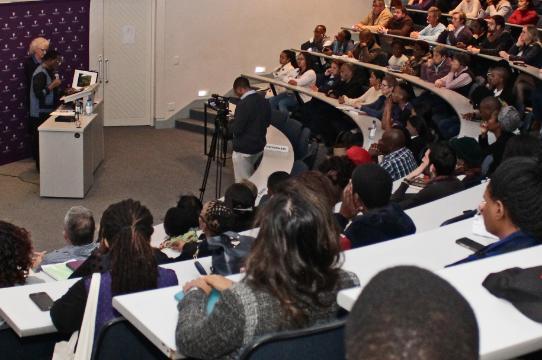
The debate over the role of higher education in relation to the public good overlaps with an increasing scrutiny of government funding and the state’s involvement in higher learning institutions. Having professionally skilled citizens is largely considered an essential condition to societal good, but only to the extent that they serve society.
If the very costly postgraduate education is not a public good, and is simply a private benefit for those students who study at that level and go on to accrue enormous private wealth, then why should it be funded? This was the central theme of the annual Interdisciplinary Postgraduate Conference hosted by the Centre for Postgraduate Studies at Rhodes University in late July.
This conference saw postgraduates engage in ‘public good’ debates about climate sustainability, socio-economic development, the fourth industrial revolution and blue-sky research. The focal point of the discussions was how postgraduate scholars view their work in the context of the societies in which they live – which takes into account (among other things) who the public is, and what constitutes ‘good’.
Uncertain returns
It was evident that postgraduate scholars are deeply passionate about their fields of study. However, it was also apparent that it is often difficult to draw a direct line from the kind of research that builds abstract disciplines to attending to social concerns. Such research, which is often deemed less relevant within both political and commercial spheres, tends to battle to obtain funding more than practical research. This is because blue-sky projects are perceived to offer uncertain returns on investment.
Despite this, the conference participants held that such research is important. Such domains where real-world applications are not immediately evident help to expand and grow disciplines leading to the emergence of new ideas and concepts with potentially far-reaching implications.
Governments in the Global South need to invest in such research that can propel us into unknown spaces, shifting paradigms and creating knowledge in directions not yet imagined. This cannot be left to be the domain of the richer nations in the Global North, or such divides will simply be further entrenched.
For many disciplines there is a simpler and clearer relationship between knowledge generation in postgraduate scholarship and the goals of improving the socio-economic landscape of society. Postgraduate scholars not only need to understand the power of their work to impact and shape society, but also need to realise the responsibility that comes from this.
Pushing boundaries
There was general agreement that our research contributes to the public at large: it addresses concerns about ecological degradation, it tackles persistent social problems, it builds our understanding of the planet and the cosmos, it nurtures us as critical citizens, and it pushes the boundaries of knowledge fields.
In South Africa, for example, a country which still grapples with extreme divides between the rich and poor, innovations and ideas which attend to economic competitiveness without foregrounding social justice are problematic. Complex social problems such as poverty, inequality, unemployment and the like, require careful thought and creative solutions.
The postgraduate research sector can play a significant role. Postgraduates studies are essential in challenging existing norms and frames of thinking prominent in any society. They nurture critical-thinking citizens and equip them with the intellectual tools necessary for navigating the ever-changing political and social landscapes in which they find themselves.
Moreover, in this era of big data and post-truth politics, where we have more information circulating than anyone could have imagined, postgraduate scholars need to understand their roles in contributing to the public’s understanding of the world. We need to make sure that our institutions are adaptable to address these new realities, but we also need to make sure that we never lose our commitment to knowledge as a public good.

